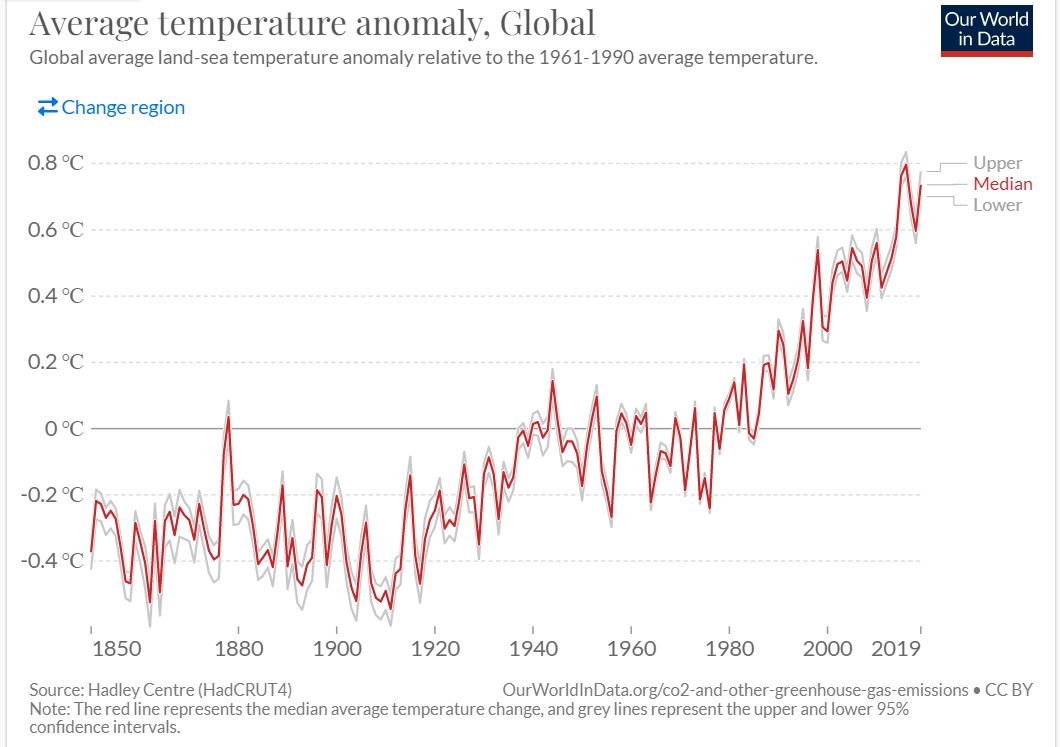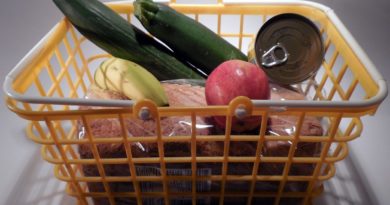Opinion: Transitioning the bike industry to genuine sustainability
Sustainability is a complex conversation. Fraught with unintended consequences, costs and marketing faux paus it’s a minefield for upstarts. Expert Rob Weddon lends us his know-how…
 If Sustainability is “meeting the needs of the present without compromising the ability of future generations to meet their own needs” we all have some way to go. Since the Rio Earth Summit in 1992, where 178 countries adopted a “global plan for sustainable development to improve human lives and protect the environment” we’ve seen a 60% growth in annual greenhouse gas emissions, 0.6 oC rise in average global temperatures, and increased rate of biodiversity loss and species extinction. It’s not all bad news – most social indicators have significantly improved over this period in pretty much every country.
If Sustainability is “meeting the needs of the present without compromising the ability of future generations to meet their own needs” we all have some way to go. Since the Rio Earth Summit in 1992, where 178 countries adopted a “global plan for sustainable development to improve human lives and protect the environment” we’ve seen a 60% growth in annual greenhouse gas emissions, 0.6 oC rise in average global temperatures, and increased rate of biodiversity loss and species extinction. It’s not all bad news – most social indicators have significantly improved over this period in pretty much every country.
In 2021 Glasgow hosted the COP26 climate conference. And for perhaps the first time it feels like the supertanker of global government and industry is intent on turning away from the most environmentally damaging practices. But there is a huge amount of work to do to achieve significant reductions in global Greenhouse Gas (GHG) emissions, pollution, and deforestation, alongside driving increases in biodiversity whilst at the same time continuing to improve global living standards.
Sustainability has become a buzzword in the cycling and wider sports industries, ever since the Blue Planet and other environment-related programmes raised the public profile of the damage humans are inflicting on the natural environment through business as usual. The pandemic has further heightened the awareness of the link between environment and human health, and the current horrors in Ukraine are highlighting wider issues with our reliance on fossil fuels and the regimes that profit from them.
What’s the issue with sustainability?
It certainly feels like our industry has woken up to the fact that we need to change, but there are a few fundamental problems with “sustainability” as we commonly see it portrayed:
It’s not enough.
Sustainability is the idea of maintaining the status-quo. In reality we live in a world of significant environmental and biodiversity degradation, alongside pervasive social injustice, so the aim going forwards needs to be improving as opposed to merely sustaining.
It’s too ambiguous and can be interpreted in many different ways, depending on what’s important to you. In clothing, for example, where you sit on the naturals v synthetics debate will depend on whether climate change, resources, land and water use, or pollution are most important to you. In the hardware side the same applies: An Aluminium frame’s production emits almost four times more greenhouse gas than carbon, on the flip side it’s far more widely recycled and uses 40% less water to produce. So, which is more “sustainable” is very subjective.
It’s too one dimensional.
Just packaging, or even making product from recycled/renewable materials doesn’t make it sustainable, but it’s often portrayed in these simple terms. To start with, there is a vast array of processes that goes into making an end product, each of these needs to be optimised for energy, material and chemical use, and waste. And whilst the environment side of sustainability tends to be the go-to consideration, the social side is equally important, but often overlooked. The environmental and social elements of sustainability are inextricably linked. If we sacrifice the environment nobody can enjoy a happy healthy life, similarly if we mistreat and underpay workers they simply can’t afford to look after the environment if it’s a matter of survival.
It’s incredibly difficult to do it properly
For smaller companies the added costs of ensuring transparency and responsible practises through the supply chain directly competes for resource against the hard work of simply getting your name out in a crowded market. Coupled with limited buying power to effect change provides a real challenge. But for the incumbents the challenge is far greater, it requires a huge commitment, effort and cost to retrofit sustainability into a traditional business model which is fundamentally at odds with true sustainability. By way of example, Nike has nine tiers of supplier with hundreds of individual companies making up their supply chain.
Instilling transparency and better practises throughout will require a huge amount of money and time.
 It doesn’t always work.
It doesn’t always work.
The law of unintended consequences is seen throughout the journey towards sustainability. At Presca we don’t pretend to be perfect in any way and have plenty of horror stories of the times when our best intent led to unsustainable outcomes. For example, in the rush to move away from plastic packaging many companies have chosen paper or card. But this could ultimately lead to more deforestation depending on the source and higher emissions by way of greater processing and transport emissions. Not wanting to take this approach we went the other way and chose compostable bioplastic bags, and are currently in the middle of a complete rethink of our packaging after constructive challenge from a customer who happens to be a waste specialist.
“Sustainability” as seen by the consumer can be bought.
It’s too easy to rely on certification of products and audits of factories as a proxy for sustainability. These are no doubt important in the sustainability playbook but should not be relied upon as the complete solution. To embed a genuinely responsible and ethical approach right through the supply chain requires every tier of the supply chain to; treat and pay workers fairly; use recycled/renewable materials to create your products (each of those ethically collected/mined/grown); eliminate toxic chemicals throughout; eliminate waste of water, materials, chemicals and energy at every stage; and, run on renewable energy. As an industry we are still a long way from being able to call any product truly sustainable.
It’s an overused phrase and a marketing tool in too many instances.
Every company is jumping on the bandwagon which makes it harder for the consumer to see what’s best practice and what’s just smoke and mirrors. This will be addressed through legislation in time and according to the recently published Green Claims Code claims should be clear and unambiguous. But it will take some time before the impacts are felt throughout industry, and until then we’ll continue to see the same noise from numerous companies that suddenly have “sustainability in our DNA”.
The big one: sustainability is completely at-odds with the way the industry currently operates.
“Sustainable” products are still very much part of the problem if they remain embedded in the take make-waste economy. The assumption of continuous growth runs throughout our industry as with any other, and as a result marketing focusses on churn of product. This ignores the inconvenient facts of a resource constrained world, and the planetary boundaries that we exceed every earth overshoot day.
We can argue the toss about which materials for our products are “environmentally preferred”, but the simple fact is that everything we make has an impact, and the more we make the greater the impact. True sustainability will require a seismic shift in the way we do business at every level. As an industry this will mean moving away from the current model based on box shifting and discounting. It will rely on developing new business models that move away from linear and lowest cost towards circular and highest value-add for the customer.
Having said all the above, at Presca we still talk about sustainability, although more sparingly than we used to. And perhaps that’s the issue with sustainability. As brands we look to package our marketing in a neat, bitesize offering, and “sustainability” is one that consumers can latch on to as a catch-all for being better than the average. The question for us all within the industry is how to transition towards genuine sustainability, and how to educate customers to distinguish between that and the generic sustainability that is too often a thin veneer with little substance. The challenge to reshape industry to one that better serves people and planet often feels immense but it’s one that every industry has to take on, if we’re going to avert the worst effects of climate change and biodiversity collapse. And in this pivotal decade how quickly we act will affect the quality of life on this planet for our children and many generations to come.
Rob is the CEO and head of climate positivity at Presca Sportswear. He trained as an environmental scientist and worked in sustainability for 15 years before founding Presca. He freely admits that he is a generalist in this space and there are many people far more qualified to write at length on the subject, although very few have had the lived experience of putting it into practice and trying to build a brand along these principles.
Further articles in this series will delve into the detail behind “sustainability” in the cycling industry, and how that might apply to your business.



